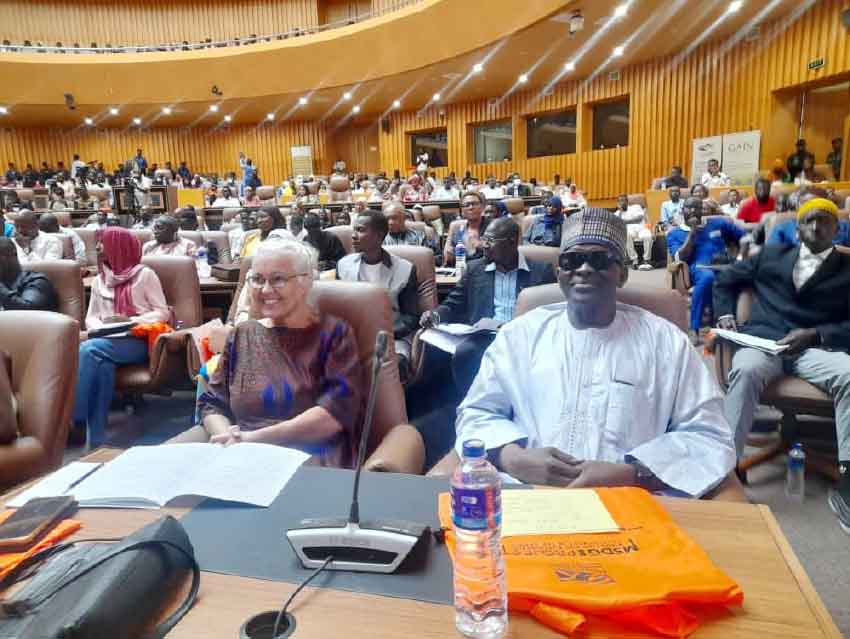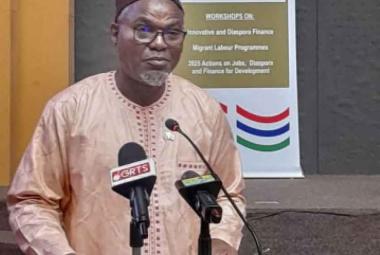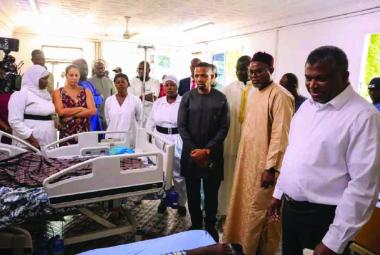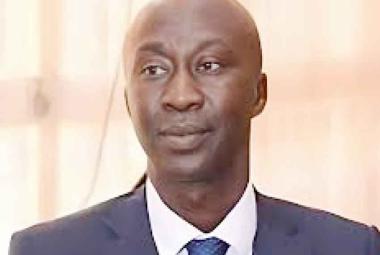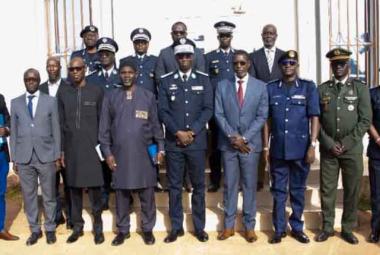Mr Momodou Njie, Senior Adviser to the Governor of Central Bank of The Gambia, on behalf of the Governor announced that The Gambia remittance flow for 2024 amounts to US$775.6 M. He made this announcement at the opening of the 8th Stake of the Nation Forum on Saturday, January 11th at the Sir Dawda Kairaba Jawara International Conference Centre.
Further in remarks, Mr Njie explained that the 775.6 million dollar remittance represents an increase of 28.8 million dollars against the previous amount.
He noted that the increase of the inflow is as a result of a number of factors including: use of improved monitoring methodology, increased use of formal channels, and emergence of fintech companies, which lowered the cost of sending and receiving money.
He said a survey by the Bank revealed that the main sources of the remittances are US, Europe and other African countries Gambians are residing in.
Mr Njie said the moneys are being used for diverse purposes including family savings, private construction works, family upkeep, health and education among others.
He however stressed that despite the improvements and contributions of the remittances to national development, there is room for improvement to maximize the benefits. He therefore recommended the creation of conducive environment for diaspora investment and cutting the cost of sending and receiving money. He also noted the need to explore partnership opportunities and improve data collection mechanisms.
For Minister of Foreign Affairs, International Cooperation and Gambians Abroad, Mamadou Tangara, the SNF symbolises the enduring bond between diaspora and homeland and also reaffirms the recognition of the diaspora as the eighth region of The Gambia, “a historic declaration made by President Barrow in 2018 and enshrined in the fourth pillar of the Recovery-focused, National Development Plan 2023 -2027”.
He went on: “This recognition transcends symbolism.
It is a solemn commitment to make the diaspora an integral part of our national development strategy. It acknowledges the diaspora as not only contributors of remittances, but also as a source of invaluable expertise innovation and global networks that can serve as catalyst for transformative care and I always say that even beyond the Gambia the mud, talked about African Renaissance cannot happen without the diaspora”.
The Foreign Affairs minister made reference to the Korean model of diaspora engagement, saying Korea succeeded because the diaspora played a key role in its development process. “Not only were they able to break the viscious cycle of underdevelopment by giving a key role to the scholar, but they also put key emphasis on culture, seeing themselves through their own eyes, not through the eyes of others, and mapping out their own development strategy,” he said.
Gambia’s Diaspora Remittance Inflow for 2024 Stands at US$775.6M – CBG
